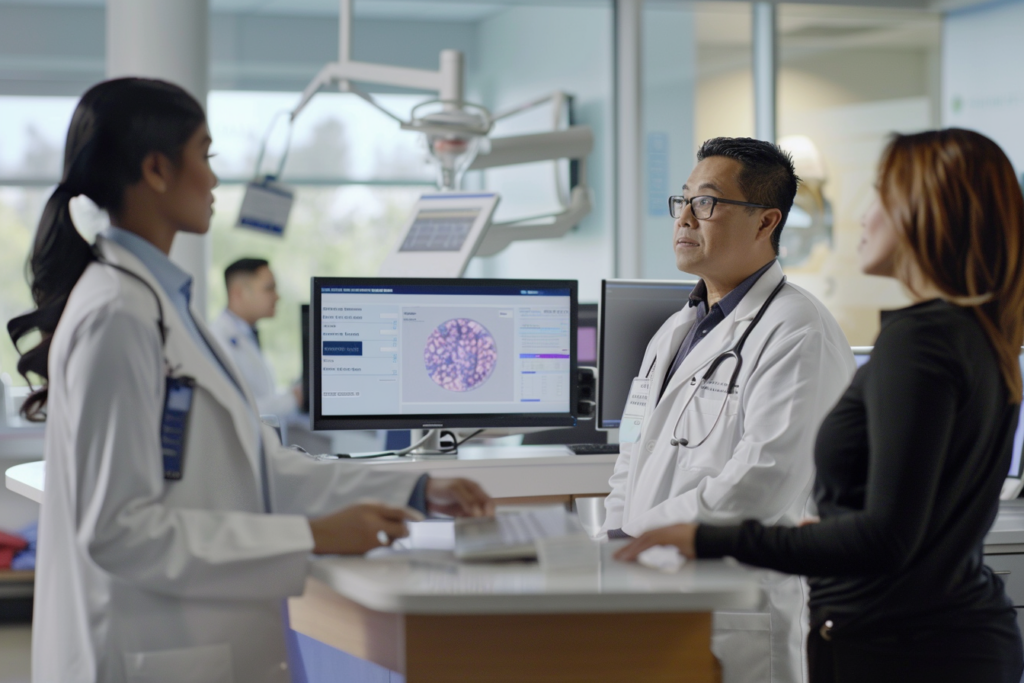How patient engagement software can enhance oncology care
Digital tools offer capabilities that can leverage real-time patient data, supporting better cancer treatment outcomes.

Each patient navigates their health journey differently. Some promptly report symptoms, others are uncertain when to speak up, and some take a wait-and-see stance.
In oncology, intense treatments bring varied side effects, often leaving patients unsure when to ask for help. The time between appointments exacerbates this uncertainty. How can continuous care be ensured while optimizing clinicians' time? The answer lies in advanced patient engagement software.
Improving patient and provider experiences
Patient engagement software is an intelligent communication tool that facilitates communication between patients and their healthcare teams outside appointments. These interfaces tailor experiences to each person, simplifying the treatment process by monitoring symptoms, collecting patient feedback, supplying supportive resources and administering timely treatment actions when required.
In cancer care, oncology-specific systems have been carefully designed to understand the needs of people undergoing cancer treatment.
Almost 90 percent of patients believe that taking an active role in their own care via a digital engagement platform has many benefits, and nearly all would recommend other people receiving treatment use a similar tool. Additionally, individuals are less likely to experience serious adverse events when using an advanced platform, improving overall safety.
These platforms streamline workflows for healthcare providers, ensuring more focused patient interaction. Benefits include enabling digital patient monitoring, automated triage of patient-reported outcomes and intelligent symptom management.
For example, clinics using patient engagement software reported a 57 percent to 84 percent reduction in phone calls, enabling staff to prioritize their patients. Some applications equip nurses to view lab results, review patient-reported outcomes, and coordinate treatment decisions with the oncologist, eliminating the need to conduct patient visits before infusions.
Other provider benefits include automated prioritization of symptom reports; workflow management within care teams; patient-level decision support dashboards; patient population dashboards; digital patient consent forms; automated communication of upcoming appointments; and remote tracking of patients' self-reported vital signs, symptoms and medication adherence.
Unsurprisingly, a recent market analysis report anticipates more than 15 percent growth in the adoption of patient engagement solutions in the U.S. from 2023 to 2030. For oncology clinics, this signals an improvement in efficiency while creating space to deliver personalized patient care.
Harnessing real-world data
These platforms aren’t just communication tools. They’re reservoirs of real-time patient-reported data, such as side effects, quality of life and mental health status.
Advanced analytics extract actionable insights from the collected data and translate them into real-world evidence. As a result, physicians can identify trends in therapy, predict potential side effects and make informed treatment decisions that profoundly impact patient care.
Additionally, sharing real-time patient data within healthcare organizations provides immediate benefits, such as population-based outcome reports, enhanced treatment protocols and smoother clinic workflows.
Leveraging intelligent software
By harnessing AI and machine learning, patient engagement platforms can predict symptom onset and progression. As more data is accumulated, the system becomes smarter, offering better advice for patient care.
Intelligent platforms tailor content based on specific factors such as age and socioeconomic context by extracting insights from a patient's journey and comparable peers. The data collected feeds machine learning algorithms, continuously informing recommendations for more seamless patient care.
In simpler terms, this technology is reshaping cancer care, highlighting potential symptoms early on and facilitating swift interventions. Intelligent algorithms in modern systems offer crucial daily support to cancer patients. They can identify trends that lead to likely symptoms, easing patient concerns and helping healthcare teams address fears faster.
This support, both for patients and healthcare providers, along with the data we collect, could lead to even more personalized and value-driven cancer care in the future.
Embracing change
Advanced patient engagement software revolutionizes cancer care by bridging the gaps between appointments, enhancing the patient experience and streamlining clinical workflows. Studies consistently show improved patient outcomes, reduced adverse events to treatment and more efficient healthcare operations.
The integration of real-world data and intelligent technology drives this transformation. By embracing these innovations, the way can be established for a future where cancer care promises greater personalization, efficiency and overall value in delivering care.
Anish Patankar is senior vice president of oncology software for Elekta. He is a health tech expert specializing in the cloud, Internet of Things (IoT), big data and artificial intelligence.